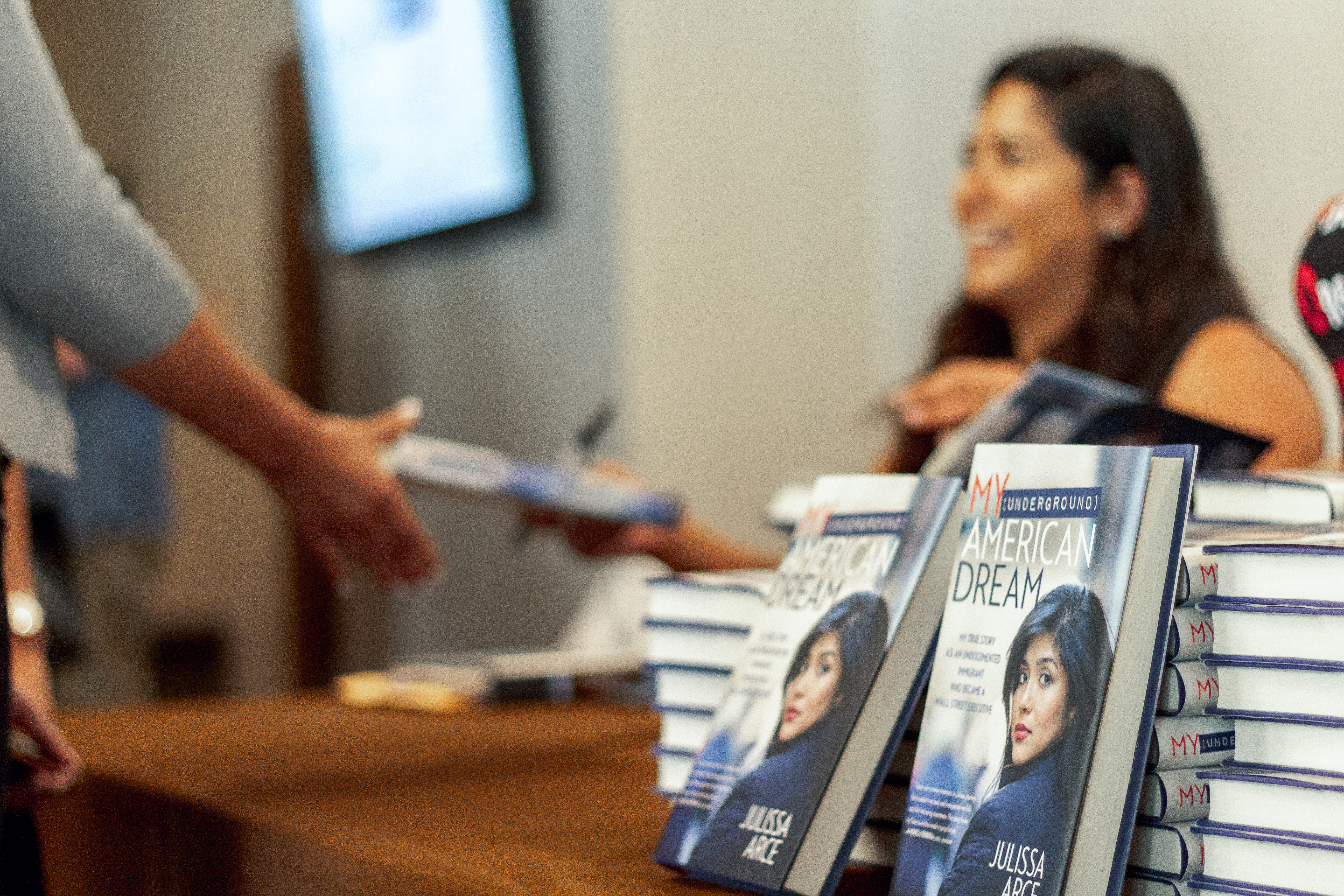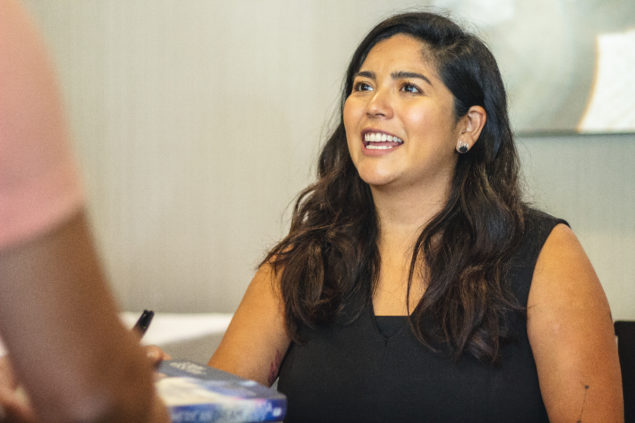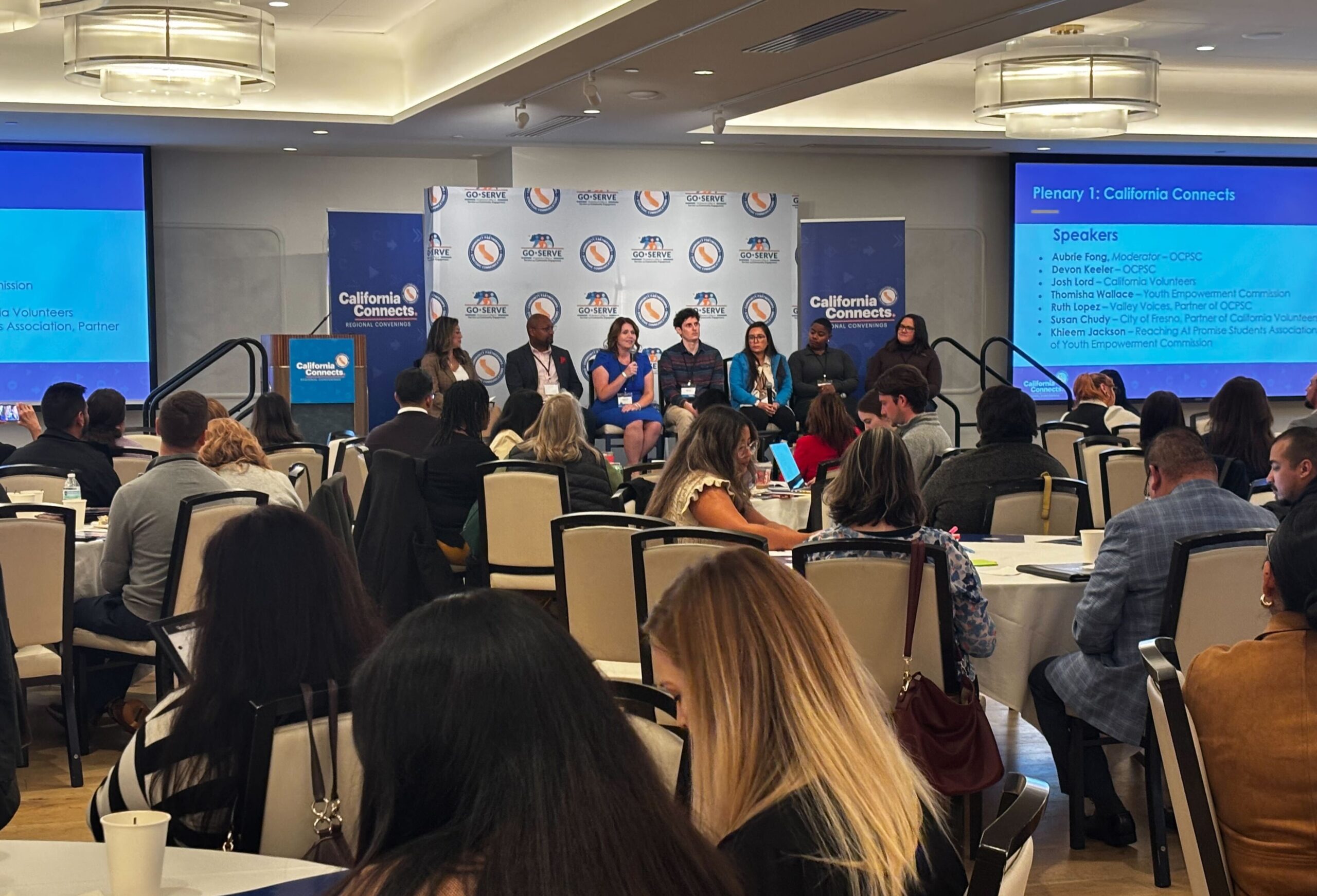![]()
Editor’s Note: September 6-7, 2018, The California Endowment hosted the #Fight4All Convening in Fresno California. This convening was meant to reaffirm their Fight For All initiative, which was created in December 2016. Robert K. Ross, M.D., President and CEO of The California Endowment said, “The Fight for All fund was created to stand alongside those whose health and lives are threatened by attacks on their coverage, their immigration status, or simply on who they are as human beings. So our support for lifting up their voices will not skip a beat today, but will continue forward.”
One of the many powerful women we were able to interview at the Fight For All convening was Julissa Arce, a writer, speaker and social justice activist. Arce is also the author of “My (Underground) American Dream: My True Story as an Undocumented Immigrant Who Became a Wall Street Executive”. “My Underground American Dream” is currently being adapted into a TV show through Twentieth Century Fox, with producer and actor America Ferrera!
Below is the interview reporter Zyanna Maynard conducted with Julissa Arce, with support from Program Associate and Reporter Johnsen Del Rosario.

ZM: What does it mean to be a woman of color, but to also be a strong political activist?
JA: You know what’s funny? I think that being born a woman of color, you’re almost born having to be an activist. Because from the moment that you’re born, there are all these things you have to fight against. Even within your own family. Especially as a Mexican woman. My dad was awesome and amazing, but he was still a macho man and it was having to teach my own dad like, “Hey, these are different times. I know when you were growing up, things were this way, but…” Just having to be a rebel even with my dad and feeling like I was a bad disobedient child, when in reality, I was standing up for myself. So yeah, being a woman of color means to be an activist already.
ZM: What do you want to tell youth that are following in your footsteps?
JA: You know, I was just reading a quote today that said that we have to stop saying we are giving a voice to the voiceless and instead pass the mic. To me, that has to become my new way of thinking. I don’t speak for everybody, and nobody does, and so really, passing the mic – that’s what I would urge people to – even the framing of this question of following in your footsteps. I think everyone should follow their own footsteps because your own activism, your own story, might lead you to different places and different routes and different ways of doing things. So, what I would say to young people is to follow in your own footsteps, to find your own voice and to use your voice and your platform to then pass it on to someone else.
ZM: When you first started doing activism, did you have any idea that you’d be in this space or was it just a whatever happens happens?
JA: I had no idea that – not that long ago, five years ago, I was sitting at a desk on Wall Street selling derivatives. Selling and structuring derivatives. I never imagined that now I’d be writing books and selling books. Honestly, it was easier selling derivatives than it is to sell books. A mentor of mine said to me the other day, “Some days, I wish I could just sell tamales. They sell better.” And I’m like, “Yeah, man. I wish our books sold like hot tamales.” But I had no idea. I didn’t have a plan for when I decided to share my story and be public about having been undocumented, I never imagined that five years later, I would be traveling around the world sharing my story.
 My second book came out September 18, which is mindblowing to me still. It’s been an interesting journey because every time I share my story, I have to revisit the pain that I lived, the pain that I’ve tried very hard to heal from and to get over. I think I’m finally starting to be at a point where I can share my story and share the more painful parts of my story without breaking down or without it affecting me so much emotionally each and every time. It’s been an incredible journey that I’ve learned a lot from and I’m looking forward to seeing where it meets me.
My second book came out September 18, which is mindblowing to me still. It’s been an interesting journey because every time I share my story, I have to revisit the pain that I lived, the pain that I’ve tried very hard to heal from and to get over. I think I’m finally starting to be at a point where I can share my story and share the more painful parts of my story without breaking down or without it affecting me so much emotionally each and every time. It’s been an incredible journey that I’ve learned a lot from and I’m looking forward to seeing where it meets me.
My whole life, I’ve always had a plan. Even when I was undocumented, I had a plan. Like I knew in my career where I wanted to go and this is the first time in my life where I really cannot tell you where I’ll be in five years. That’s really scary, but at the same time, it’s exciting. I don’t have a plan. I don’t know where this is going to lead me. I don’t know where the need is going to be. In immigration right now, we’re having to put out so many fires at once. We can’t forget about what’s going on with DACA and the fact that the Dream Act hasn’t passed. And at the same time though, we have this new crisis at the border where kids are being separated from their parents. But at the same time, we can’t forget that families are being separated every single day through enforcement, when people get deported. We can’t forget about the person that’s in the fields. Here in the Central Valley, we have to think about it, right? There’s people in the fields that are being treated inhumanely and that are being deported and that are being treated just like a piece of the factory. If we lose this one, we can’t replace it with a new one. So there’s so many things that we can’t forget about. We’re pulled in so many different directions, that I have no idea where I’m going to go.
ZM: My closing question: what do you want the future to look like?
JA: I want a future where everyone has access to the same opportunities. I want a future where stories like mine and stories that you see on the news of people of color who have made it and who have achieved great things, that they’re not even in the news because it’s not news. That that’s just what happens every day. That’s what I want.
At this point in the interview, Arce was asked to participate in what we at The kNOw call the “VS” wall. Here are her responses:
ZM: Sandwiches or Burritos?
JA: Burritos, for sure.
ZM: Cake or pie? Cheesecake is a pie, just throwing it out there.
JA: Cake or pie? Cake.
ZM: Crunchy or smooth?
JA:Crunchy.
ZM: Me too. Unless I’m in a rush, because crunchy is very hard to spread on the bread.
JA: That’s true, it is.
ZM: Last one. Waffles or pancakes?
JA: Ooh. Ugh, that’s the hardest one.
ZM: They’re both so good. They’re technically the same batter.
JA: Waffles.


